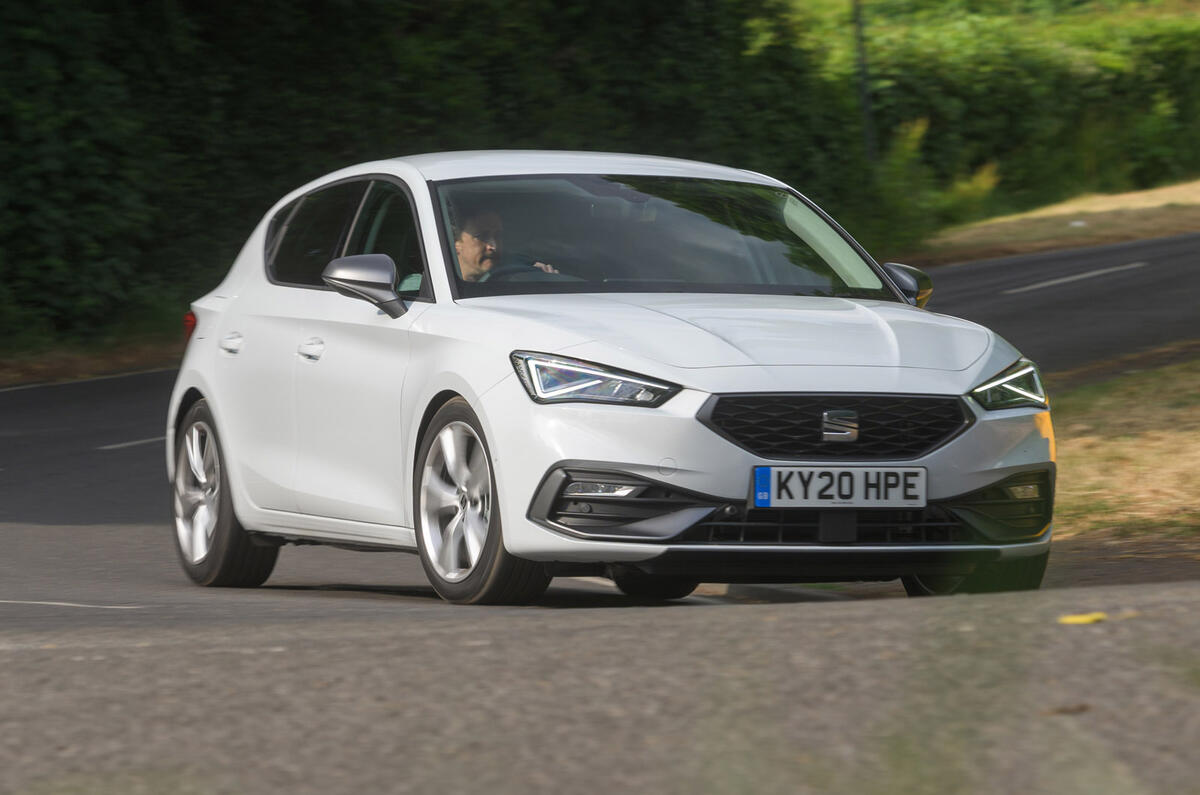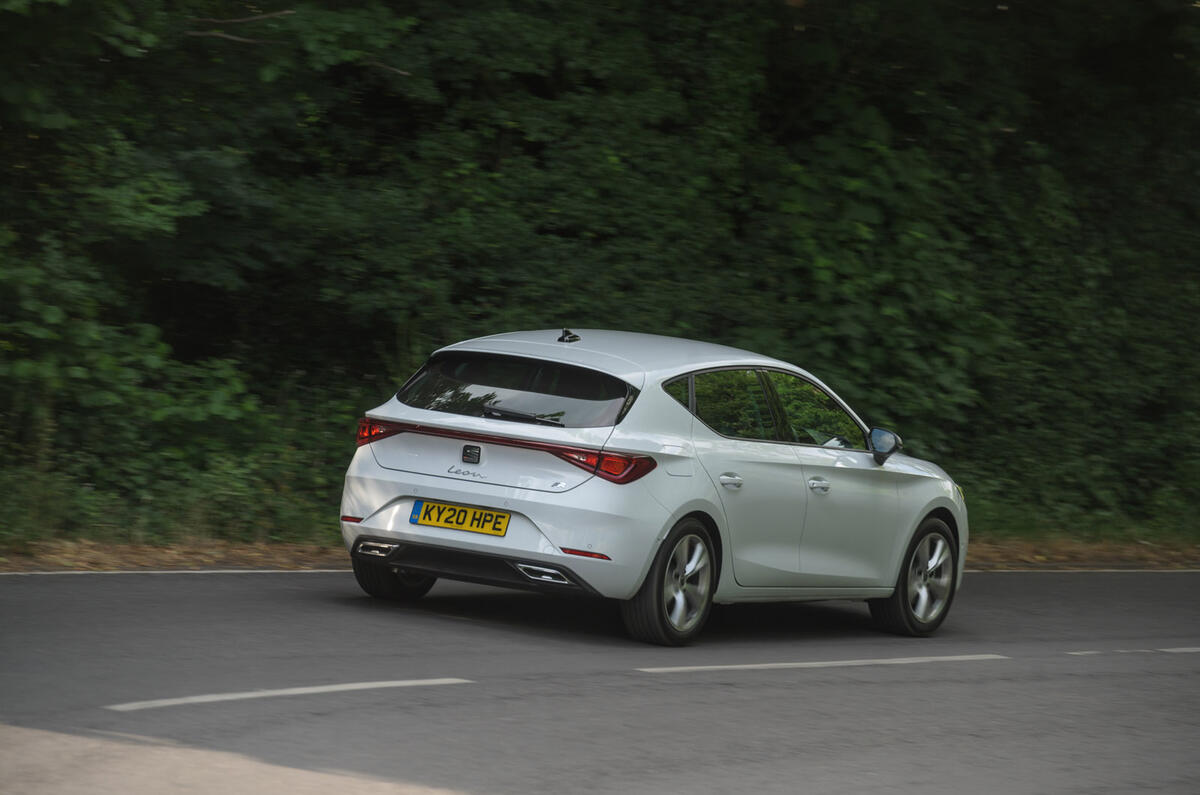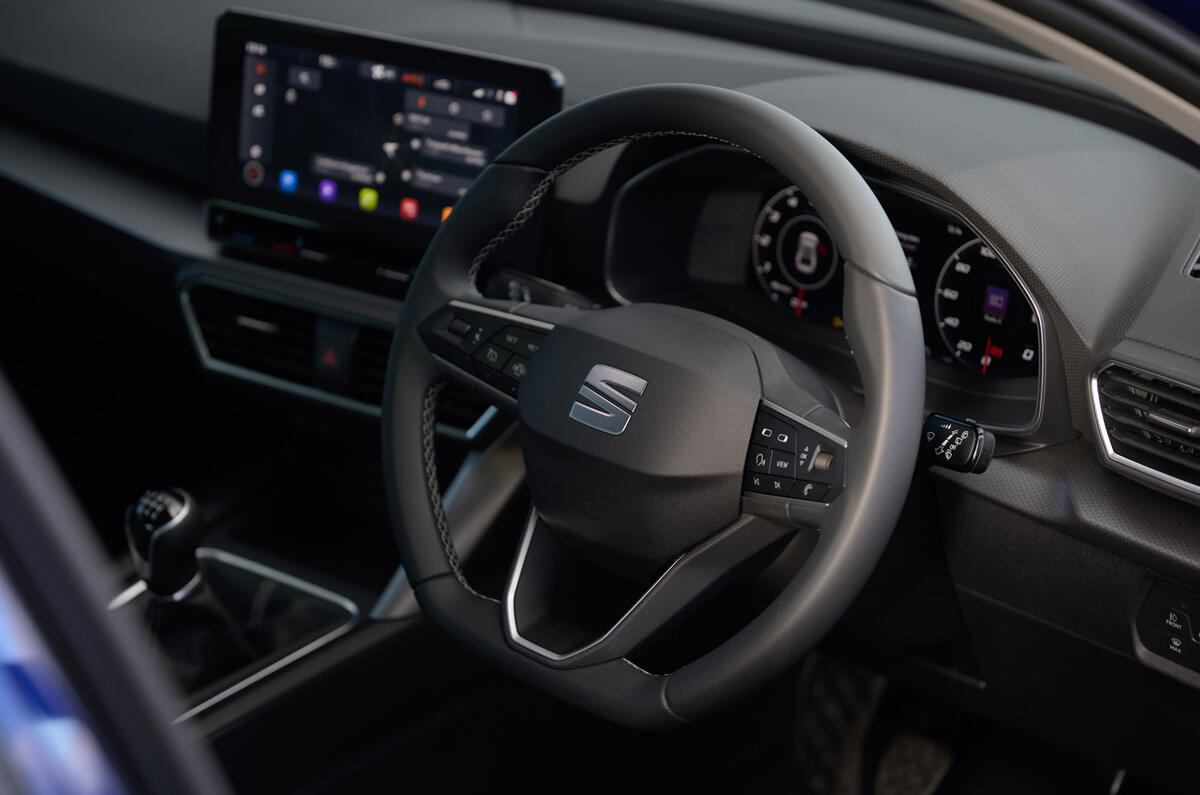There are few better choices than a Seat Leon if you’re after a wellrounded family car. We loved the previous model but the latest, fourth-generation car (on sale since 2020) is an even more attractive buy.
It offers a versatile mix of petrol, diesel and electrified powertrains, as well as hatchback and estate bodystyles, and its refinement and equipment levels match those of its Volkswagen Golf cousin.
The Leon is not just a clone of its German counterpart, though. Its handsome styling looks crisp and it’s involving to drive, thanks to a selection of smooth powertrains, tidy dynamics and progressive brakes. A smart-looking, uncluttered interior helps to make it a complete and capable package.
The toughest decision will be choosing which powertrain to go for. The range opens with a 1.0-litre turbocharged petrol engine that produces 108bhp. There are also two turbocharged 1.5-litre petrol units. The 128bhp 1.5 will dispatch 0-62mph in 9.4sec and the 148bhp 1.5 will complete the sprint in 8.7sec.
The largest pure petrol engine is a 2.0-litre turbo. It’s the fastest Leon you can buy now that Cupra has become its own standalone brand, with 0-62mph in 7.4sec and a top speed of 144mph. Mile-munchers are also spoilt for choice as there are 2.0-litre diesel options in 113bhp and 147bhp guises.

As for electrified models, the Leon is offered as both a mild hybrid (badged eTSI) and a plug-in hybrid (eHybrid). The eHybrid is driven by the same 1.4-litre petrol engine used in the Golf GTE and is mated to an electric motor for a total of 201bhp and a 0-62mph time of 7.5sec. Its 13kWh battery enables an all-electric range of 38 miles and takes 3.5 hours to charge using an AC home charger.
The eTSI, meanwhile, uses a 48V starter-generator and a small lithium-ion battery for energy recuperation, silent coasting and torque assistance. This hybrid system is available on the 1.0 and 1.5 TSI petrol engines.

















Join the debate
Add your comment
I like this Seat.
In this range of price I think is the best model.